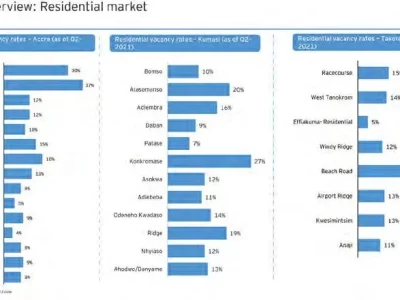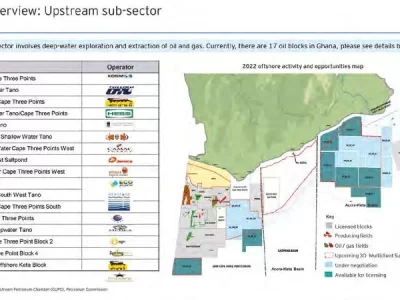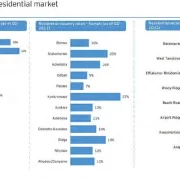The Ghana Investment Promotion Centre (GIPC) encourages, promotes and facilitates foreign investments in Ghana. It has developed a user-friendly guide detailing procedures to set up a business in Ghana.
STEP 1: REGISTRATION WITH REGISTRAR GENERAL’S DEPARTMENT
Incorporate a company at the Registrar General’s Department (RGD) and obtain the following:
- Certificate of Incorporation and TIN number
- Company Regulation
- Certificate to Commence Business
STEP 2: MINIMUM EQUITY CONTRIBUTION
Foreign investors are required to comply with the GIPC Act 2013 (Act 865) regarding minimum equity requirements, either in cash or in capital goods relevant to the investment; or a combination of both. By way of equity participation, the breakdown is as follows:
- US$200,000 for JV, with Ghanaian partner having not less than 10% equity participation
- US$500,000 for 100% foreign ownership
- US$1,000,000 for Trading Activity with a minimum of 20 skilled Ghanaians employed by such an enterprise.
*there is no minimum equity requirement for foreigners interested in the following sectors: manufacturing, export trading and portfolio investment.
- Bank Account – open 2 corporate accounts (foreign and local) with a local
- By Bank Transfer – Effect a bank-to-bank transfer of the minimum foreign equity requirement, which will be converted into local currency (Ghana Cedis). This transaction should be confirmed to the Bank of Ghana by the investor’s local authorised dealer bank. The Bank of Ghana in turn confirms this transaction to GIPC for the company’s registration purposes.
- Equity in Kind (Capital Goods) – in the case of equity in kind, in the form of imported machinery, equipment and goods, all documents covering such imports should be in the name of the registered company and evidenced by the following, which should be submitted to GIPC for registration purposes:
- Bill of Lading/ Airway Bill (original document)
- Destination (Ghana) Inspection Certificate
- Custom Bill of Entry (original document)
- Import Declaration Form (IDF)
- Certified/Final Invoices
- Evidence of Capitalisation – Form 6 from the Registrar General’s Department\
STEP 3: REGISTRATION WITH GIPC
The Investor then registers with the GIPC (after paying the relevant fees) for the process to be completed. This procedure takes five (5) statutory working days to complete, provided the registration forms and all supporting documents are in order.
*Requirement for Renewal: Section 24(3) of the GIPC Act, 2013 (Act 865) permits renewal with the Centre every two years.
STEP 4: REGISTRATION WITH THE GHANA REVENUE AUTHORITY (GRA)
All enterprises must register directly with the Ghana Revenue Authority for purposes of statutory tax e.g. taxes, rebates and exemptions.
STEP 5: ENVIRONMENTAL IMPACT ASSESSMENT CERTIFICATE
Applicable enterprises must register and obtain an environmental permit from the Environmental Protection Agency (EPA).
Please note: Registration with other relevant Agencies – companies are to comply with regulatory requirements within their various sectors of operations.
INCENTIVES FOR INVESTING IN GHANA
CUSTOMS DUTY EXEMPTIONS FOR CAPITAL GOODS AND EQUIPMENT
Enterprises are free to implement their projects by importing the relevant plant, machinery and equipment. Zero-rated and concessionary duty items can be cleared automatically and directly through the Customs Division of the Ghana Revenue Authority (GRA).
AUTOMATIC IMMIGRANT QUOTAS DEPENDING ON PAID-UP CAPITAL
All wholly Ghanaian-owned enterprises and enterprises with foreign participation seeking immigrant quota facilities in respect of expatriate personnel (experts) for their businesses should satisfy the relevant minimum capital requirements specified under Section 35 of Act 865. Making an Immigrant quota request is done by letter to GIPC with the following documentation:
- Cover letter addressed to the CEO (letter to indicate name of expatriate and position in the company)
- Resumé or curriculum vitae of the expatriate
- Copy of biodata page of passport
- Copy of employment contract
Minimum quota threshold (paid-up capital):
- 1 Person(s) US$50,000-250,000
- 2 Person(s) US$250,000-500,000
- 3 Person (s) US$500,000-700,000
- 4 Person (s) US$700,000
INVESTMENT GUARANTEES FOR ENTERPRISES
- Guarantee against expropriation
- Repatriation of dividends and profits after tax
- Payments in respect of loan servicing for foreign loans
- Transfer of fees for technology and service agreement
- Remittance of proceeds in the sale or liquidation of investment
- Bring in freely convertible currency through authorised dealer banks
GHANA’S UNIQUE ADVANTAGES FOR POTENTIAL INVESTORS
Ghana offers a stable political environment, implementing sound macro-economic policies and it allows for 100% foreign ownership. T e country offers easy access to ECOWAS, European and U.S. markets and boasts good seaports, airports and road networks. Land and labour force are available.















Comments